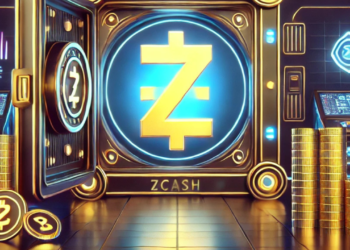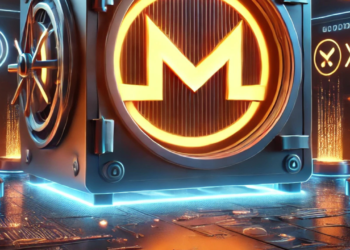Decentralized Finance (DeFi) has revolutionized the financial world, enabling users to trade, lend, borrow, and stake assets without relying on traditional banks. However, blockchains are inherently isolated and cannot access real-world data on their own. This is where oracles come into play.
Oracles act as bridges between blockchains and external data sources, allowing smart contracts to access off-chain information like asset prices, weather conditions, sports scores, and even real-world events. Without oracles, DeFi applications wouldn’t function properly.
In this article, we’ll explore how oracles work, their importance in DeFi, the dominance of Chainlink, and alternative oracle solutions that are shaping the industry.
What Are Oracles in Blockchain and DeFi?
Oracles are third-party services that supply smart contracts with external data. Since blockchains cannot directly fetch information from the internet, they rely on oracles to bring in price feeds, market data, and other real-world inputs.
How Do Oracles Work?
- Data Source Identification – Oracles fetch data from multiple reliable sources (e.g., crypto exchanges, financial markets, APIs).
- Data Aggregation – The oracle verifies and consolidates data to prevent manipulation.
- Blockchain Integration – The processed data is sent to a smart contract, which then executes predefined actions.
- Automated Execution – The smart contract performs transactions based on the received data (e.g., liquidating a loan if collateral value drops below a threshold).
Why Are Oracles Important in DeFi?
DeFi applications heavily rely on accurate and real-time data to function properly. Some key use cases include:
1. Price Feeds for Decentralized Exchanges (DEXs)
Oracles provide real-time crypto prices for automated market makers (AMMs) like Uniswap, PancakeSwap, and Sushiswap.
2. Lending and Borrowing Protocols
Platforms like Aave and Compound use oracles to track collateral values and prevent under-collateralized loans.
3. Stablecoins and Algorithmic Coins
Oracles help maintain stablecoin pegs by supplying accurate fiat currency exchange rates.
4. Yield Farming and Staking Rewards
DeFi protocols use oracles to calculate rewards based on external market data.
5. Insurance Protocols
Platforms like Nexus Mutual and Etherisc use oracles to verify real-world events like flight delays or smart contract failures.
Chainlink: The Leading DeFi Oracle
Chainlink (LINK) is the most widely used and trusted decentralized oracle network. It enables smart contracts to interact securely with real-world data, APIs, and off-chain computation.
Why Is Chainlink So Dominant?
✔ Decentralized Network – Chainlink uses a network of independent node operators, reducing centralization risks.
✔ High Security – Chainlink employs data aggregation and cryptographic proofs to ensure accuracy.
✔ Wide Adoption – Integrated with top DeFi protocols like Aave, Synthetix, and Compound.
✔ Multiple Data Sources – Aggregates data from multiple exchanges to prevent price manipulation.
✔ Customizable Oracles – Allows developers to create custom oracle solutions tailored to their needs.
Official Website
How Does Chainlink Work?
- Data Request – A smart contract sends a request for external data.
- Node Selection – Chainlink selects multiple independent oracles to fetch the data.
- Data Verification – The oracles retrieve data, verify accuracy, and aggregate results.
- Final Output – The data is sent to the blockchain, where it triggers the smart contract.
Alternatives to Chainlink
While Chainlink dominates the oracle space, several alternative oracle providers offer unique solutions. Here are some of the top competitors:
1. Band Protocol (BAND)
- A cross-chain oracle that connects real-world data to smart contracts.
- Uses delegated proof-of-stake (DPoS) for security.
- Faster and more scalable than Chainlink.
- Supports multiple blockchains, including Ethereum, Binance Smart Chain (BSC), and Cosmos.
- Official Website
2. API3
- Offers first-party oracles, meaning data providers operate their own oracles (no middlemen).
- Uses Airnode technology to enable direct API-to-smart-contract integration.
- Reduces trust assumptions by eliminating third-party data manipulation.
- Official Website
3. DIA (Decentralized Information Asset)
- A fully open-source oracle that allows users to verify data sources.
- Uses community-driven data feeds, improving transparency.
- Supports custom data oracles for niche markets.
- Official Website
4. Tellor (TRB)
- A decentralized oracle network that relies on proof-of-work (PoW) mining to secure data.
- Uses a game-theory-based dispute resolution system.
- Well-suited for Ethereum-based DeFi applications.
- Official Website
5. Pyth Network
- Provides high-frequency market data from traditional financial institutions.
- Designed for low-latency, real-time pricing.
- Primarily used on Solana, but expanding to multi-chain ecosystems.
- Official Website
Challenges and Risks of Oracles in DeFi
While oracles are crucial for DeFi, they also present several risks:
1. Oracle Manipulation Attacks
- If a malicious actor controls the data source, they can manipulate prices (e.g., flash loan attacks).
- Solution: Use decentralized oracles with multiple data providers.
2. Centralization Risks
- Some oracles rely on a single data provider, making them a central point of failure.
- Solution: Use decentralized oracle networks like Chainlink or Band Protocol.
3. Latency Issues
- Delayed price feeds can lead to inaccurate liquidations or arbitrage exploits.
- Solution: Use low-latency oracles like Pyth Network for real-time data.
4. Smart Contract Vulnerabilities
- Oracles depend on smart contracts, which can be hacked or exploited.
- Solution: Use audited and secure oracle services.
Conclusion
Oracles play a critical role in the DeFi ecosystem by providing accurate and real-time data for smart contracts. While Chainlink remains the industry leader, alternatives like Band Protocol, API3, and Tellor offer unique advantages.
As the demand for secure and decentralized finance grows, oracle solutions will continue evolving, ensuring that DeFi applications remain trustworthy and efficient.
Are you using oracles in DeFi? Let us know which one is your favorite! 🚀
Disclaimer
This article is for informational purposes only and should not be considered financial or investment advice. Using blockchain oracles comes with risks, including potential data manipulation and smart contract vulnerabilities. Always conduct your own research before engaging with DeFi protocols.










